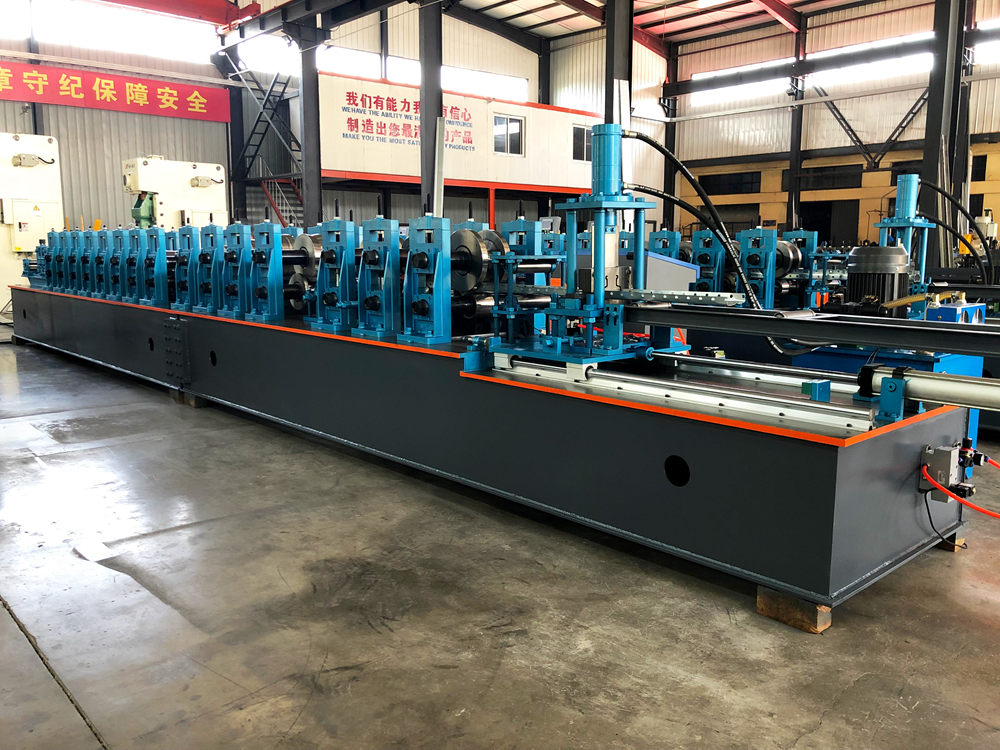
The Steel Welded Pipe Making Mill A Comprehensive Overview
Steel welded pipes play a critical role in various industries, from construction and plumbing to energy and transportation. The process of manufacturing these pipes is intricate and involves advanced technology and engineering. This article will delve into the essential aspects of steel welded pipe making mills, exploring their processes, benefits, and significance in today’s industrial landscape.
Understanding Steel Welded Pipes
Steel welded pipes are created by rolling steel into a cylindrical shape and then welding the edges together to form a continuous tube. This process differs from seamless pipes, which are manufactured from solid round steel billets. The welding technique allows for considerable cost savings and facilitates the production of pipes in different lengths and diameters, meeting diverse application needs.
The most common methods of production in a welded pipe mill include the Electric Resistance Welding (ERW) and submerged arc welding (SAW) processes. Each method has its uniqueness and application suitability based on the intended use of the pipes.
The Manufacturing Process
1. Raw Material Preparation The first step involves selecting high-quality steel coils, which are the primary raw materials in the pipe-making process. These coils typically come in various grades, depending on the required pipe strength and application.
2. Uncoiling and Forming The steel coils are uncoiled and fed into a series of rollers that form them into a cylindrical shape. This process is crucial as it determines the pipe’s final dimensions and surface quality.
3. Welding After forming, the edges of the steel strip are aligned and welded together. In the ERW method, high-frequency electric current is passed through the edges, generating enough heat to melt the metal and join them. In the SAW process, a consumable electrode is used to create a strong, deeper weld.
4. Cooling and Sizing Once welded, the pipe goes through a cooling process to stabilize the weld and enhance its structural integrity. The pipe is then resized using mechanical means to ensure it meets specific industry standards.
5. Testing and Inspection To ensure quality and safety, finished pipes undergo stringent testing, including hydrostatic tests, ultrasonic inspections, and visual checks. These tests assess the strength, weld integrity, and overall quality of the pipes.
6. Finishing The final step involves treating the surface of the pipes to prevent corrosion and enhance durability. This can include applying protective coatings or galvanization processes.

Advantages of Steel Welded Pipes
Steel welded pipes have several advantages over other pipe types
1. Cost-Effectiveness The production process is more economical compared to seamless pipes, making welded pipes a preferred choice for many manufacturers and constructors.
2. Versatility They can be manufactured in various sizes, wall thicknesses, and grades, making them suitable for a wide range of applications across different industries.
3. Installation Ease Welded pipes are generally easier to handle, transport, and install due to their lighter weight and flexibility in lengths.
4. Sustainability The use of recycled steel in production contributes to the sustainability of steel welded pipes, helping to minimize the environmental impact of industrial processes.
Applications of Steel Welded Pipes
Steel welded pipes find applications in numerous sectors
- In the construction industry, they are used for frameworks, scaffolding, and water transportation systems. - In the oil and gas sector, they serve as conduits for transporting hydrocarbons. - Additionally, welded pipes are commonly used in sewage and drainage systems, heating and cooling systems, and in various manufacturing processes.
Conclusion
Steel welded pipe making mills are vital components of modern manufacturing, producing a fundamental product essential for various industries. With advancements in technology and manufacturing processes, these mills continue to evolve, offering more efficient and sustainable solutions for pipe production. The importance of steel welded pipes cannot be overstated, as they enable infrastructure development and support economic growth worldwide. For companies in need of reliable and high-quality pipes, investing in products made by reputable welded pipe mills is indispensable for ensuring performance and durability in their respective applications.